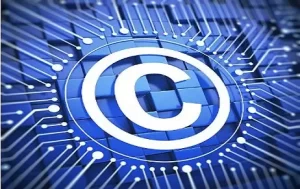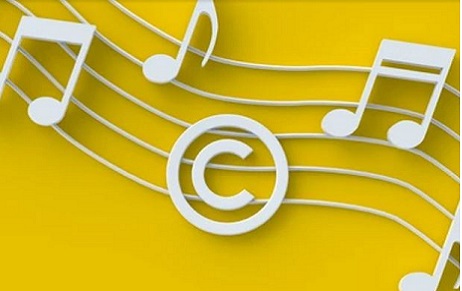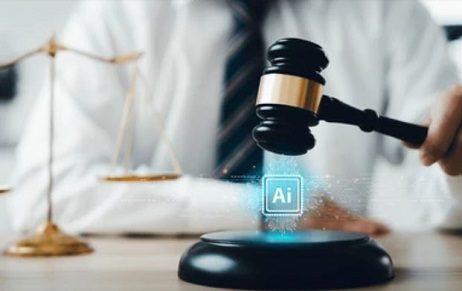Any successful café, restaurant, or retail establishment's environment is greatly influenced by its music. It…
Cyberspace And Its Contribution In Copyright Infringement
Technology has given us the internet Through the internet we have started communicating more, researching more, and gaming more. Through the internet business deals are also done smoothly without worrying about geographical boundaries. With each passing day, internet became essential in almost every sector. Whether it is an important document or a business deal internet started saving all of this. Better communication came from the existence of cyberspace. But as everything has its pros and cons so does cyberspace. Cyberspace started getting challenging. The risk associated with cyberspace started attracting more numbers which at last required legal action. A new kind of robbery has now started doing the rounds of the legal world. Online piracy is truly a menace to the cyber world.
[Image Source: Gettyimage]

Copyright owners generally consider the internet as a curse than a blessing. Copyright infringement refers to buying, selling, copying, and distributing someone’s work without their prior permission. It is very easy to copy anyone’s work in the internet. The work of other artists is downloaded in few seconds. The copyright owners found it burdensome to take legal action against the infringement as there is no use of the word internet or digital in the Copyright, Design and Patent act,1988. The Indian Copyright Act,1957 deals with the infringement of computer software only. Unfortunately, there is no hint of online piracy in the act happening around the world. The amendment act of 2012 also backslides and did not mention the word internet or digital. The void in the enactment leads to many legal issues. According to section 4 of the copyright act protection is available to the author of any musical, dramatic, literal ,and artistic work. The same protection is also available to the owner of the digital work. Therefore, online piracy is the infringement of copyright.
Due to the birth of technology, the canvas of copyright has taken a long turn. It is a very easy, cheap and effective way of pirating someone’s work and sharing it with million of others in just one fingertip.
It is also mentioned in the case of Religious Technology Center vs Netcom Online Communication Service Inc. that it is because of the internet that the piracy has settled its roots so deep. Since internet leads to mass communication preventing infringement is quite a big deal. Generally, copyright owners face a lot more difficulties and legal issues due to that.
The infringement in copyright takes place through different manners namely,
- Framing
- Caching
- Plagiarism
- Linking
- Archiving
Jurisdiction in case of copyright infringement in cyberspace
deciding jurisdiction in case of infringement of copyright in cyberspace is quite stimulating. It is often an impediment. The question is how to decide the jurisdiction whether it shall be decided on the basis of the origin of work or on the basis of where copyright is infringed or on the basis of where it is displayed. Many countries have their laws in deciding the jurisdiction. Moreover, even if the jurisdiction is decided there come another interruption as many countries have their specific laws and their nature often conflicts with each other. As mentioned in the judgment of Yahoo! Inc vs Akash Arora that the limit of jurisdiction can be extended as the plaintiff was within the limits of the state. The Delhi High Court also said that to understand infringement over the internet there should be a established contract in the business. Furthermore, in the case of Wipro ltd. Vs Oushadha Chandrika Ayurvedic it was held by the Madras High Court that according to section 62 of the Copyright Act, 1957 it advises an additional ground for understanding the jurisdiction of the court. According to the section, the owner of the copyright can file a case about the infringement in the district within whose jurisdiction the owner resides or carry on his business.
It is also seen that the WIPO Performances and Phonograms Treaty (WPPT), WIPO Copyright treaty ,and the BRENE Convention are also hushed when it came to deciding the jurisdiction.
Challenges faced in making laws for copyright infringement in cyberspace
Copyright was initiated in the era of the printing press. It was then that very few people have control of the press. At that time pirating a book or infringement was much more profitable than now but it was also easier to find the infringer. After the development of technology infringement became way easier than it was ever thought and hitches rise in locating the infringer. The first and foremost problem with the law for copyright infringement is in identifying intermediary liability.
The most significant question from the angle of copyright infringement is the liability. Who shall be liable? From the judiciary’s point of view whether the party who dispatches the work or the party who receives the work or the internet service provider (ISP). According to sec 79 of the Information technology act, if the ISP is able to prove that he was not cognizant of the infringement or even after taking the due diligence it was not able to prevent the infringement he shall then not be liable for the offence. The Indian Copyright Act states that the infringement or abetment had to be made knowingly by the person. Because of the Internet growing worldwide, the person will only be liable if the infringement is done in his local legislation, which makes it very difficult to govern as the message will transmit through many nations and then will reach the recipient, in this case then the ISP is held liable in one of the transit countries.
In the case of the Super Cassettes industry Ltd vs Myspace Ins and Anr. It was held by the Delhi High Court that section 79 of the IT Act does not cover any copyright infringement effect and the owner has no control over the intermediaries and so does section 81 of the IT Act. So, the copyright owner cannot claim the ISP under the IT Act but the intermediaries can be sued by the copyright owner under the Indian Copyright Act.
Remedies for Copyright Infringement
There are many remedies available for copyright infringement the copyright owner can seek remedies despite the fact that the copyright was registered or not. The civil remedies for copyright infringement are cited under sec 55 of the Copyright Act.
- Injuction
The first and the most used remedy is the interlocutory injunctions. Many a time it is seen that the case doesn’t go beyond the interlocutory stage.
- Pecuniary remedies
Pecuniary remedies are mentioned under sections 55 and 58. It contain of three stages mainly, the first one is the amount of profits. The amount of profits means the profit that the infringer has gain from the infringement. The second one is the compensatory damages, it means the amount of loss that the owner suffered due to the infringement and the last one is the conversion amount. Conversion amount means the amount addressed from the value of the article.
The criminal remedies available for the copyright infringement are as follows-
- It includes imprisonment up to 3 months, but not more than 3 years.
- Fine up to Rs. 50000, which may extend up to Rs. 200000.
- Search and seizure of the property.
- Deliver the infringed goods to the copyright owner.
Conclusion and suggestion
The world of copyright keeps on changing. Due to the evolution of the internet it has been very difficult to protect the copyright. When we looked at cyberspace we see new opportunities but with new opportunities come new risks too. As of now there is an urgent need to protect the copyright and make the laws of copyright infringement accordingly.
The society should be made aware of the concept of the cyberspace copyright infringement and its consequences. An individual should also add a copyright statement to protect it from its infringement.
Author: Ritika Bhati – a student of Indore Institute of Law, in case of any queries please contact/write back to us via email chhavi@khuranaandkhurana.com or at IIPRD.



